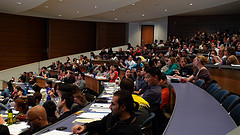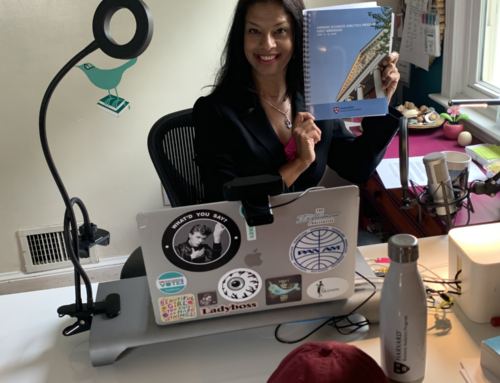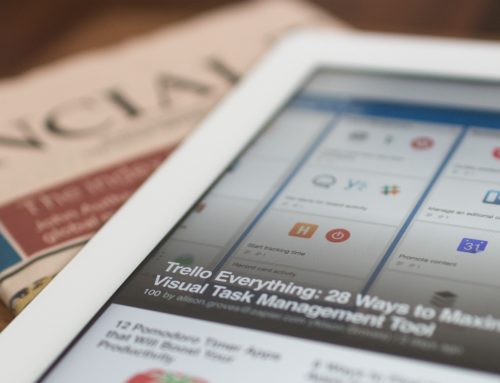Guest Post by Jamie Garantziotis
I finished my masters degree in PR and corporate communication at the end of 2009 – only 19 months ago.
However, as a young professional continuing to learn every day in the professional environment, I wondered what my degree might look like were I to embark on it all over again tomorrow.
To do that, I need to backtrack a little.
So, what subjects made up my degree and would remain in my revised edition?
- Crisis and issues management: With the growth of social media, the ability for crises and issues to spark and spread across the globe is unprecedented. Communicators need to be able to monitor and manage both emerging and potential issues.
- Theory: Yes, I chose my degree for its practical approach to communication education, but PR theory and an understanding of communication models is an essential asset in any professional’s arsenal to plan, execute and evaluate activity.
- Internship: Practical training and experience in the workplace is not only the best way to put theory to practice working with senior practitioners and find out which parts or sectors of the industry you enjoy, but also the perfect opportunity to begin building your professional network and knowledge.
- Media relations: Yes, it is important for you as a communicator to be able to identify and connect with new media influencers, but the ability to build relationships with traditional media remains a vital PR skill.
- Campaigns and strategies: Defining, planning and executing a campaign to align with business strategy and achieve goals is a highly valued skill set in PR. As one great article I read recently from IABC described it, the future communicator must be able to think both creatively and strategically. Funnily enough, they called this the “creative strategist.”
- Organizational communication: Whether working client or agency side, you have to understand the principles and processes behind internal communication. In an era of increased transparency, your internal stakeholders have their own unique communication and information needs to complete their jobs to the best of their ability, and to act as brand advocates.
- Research: Rarely, if ever, will you begin with a client, or internal project with all the facts and background information at hand. Being able to draw on knowledge of how to gather, analyze, present and identify opportunities from research findings is essential.
What would I add if I did it all over again tomorrow?
- PR writing: My degree never had a dedicated PR writing course, although writing activities across the abovementioned subjects certainly did help build my writing skills. The fact remains, whether new media or old, you must learn and know how to write content that connects with your communities.
- New media technologies: The world of new media is moving and changing the face of our profession – fast! While it’s sometimes difficult to keep pace of all the changes in individual platforms, an understanding of how they work, their content rules and how they can be used to connect with stakeholders is a highly sought-after skill. (For more on content rules, check out this great book.)
- Community management: Community management has come to the fore as a unique role and discipline in itself. More than ever you have the ability to develop communities and speak directly with influencers through content and conversation.
Being able to manage and align engagement with communication efforts internally and externally will only help add value to your audiences and demonstrate results.
- PR evaluation: In the past two years alone the growth of social networks and social media usage has seen the rise and rise of measurement and analytics. Moreover, AVEs are (finally) being dropped as a tool for measurement. Sure, you mightn’t have a new universal standard to work with, but you must understand current advances in measurement, and to think about where these are taking PR evaluation in future.
- PR and business ethics: The great irony is that PR continues to struggle to manage its own reputation. Despite the majority of ethical practitioners in the profession, there’s always a story questioning the ethics of the industry around the corner; just look at the debate surrounding Facebook/Burson-Marsteller. Whatever your view regarding this example, you need to understand ethics and the wider debates to be able to act independently as an ethical practitioner.
- Introduction to business management/commerce: I was stunned when IABC Victoria President Jen Frahm pointed out recent findings from an Ogilvy/IABC research study that found that only 4% of surveyed respondents believed that an understanding and experience of business management and operational experience was an important attribute for future PR professionals.
For me, being able to learn the way my employer works as a business has been the steepest and most important learning curve. Understanding business and the inner and outer machinations of your employer or client is not only necessary, but transforms an individual from a communication professional into a business professional who manages communication.
Forever learning
We are all students who continue to evolve as the media and communication environment changes around us. As a communicator, it’s your responsibility to take charge of your personal and professional development.
Whether you’ve been in the industry for two years or 20, developments in media and technology are rapidly changing the business and social environments in which you operate.
For me, I know that although I’ve got that piece of paper that represents my degree, that’s just a springboard for the greater lessons and development still to come.
What do you think? Have I missed any key skill sets for communicators in my revised degree? How has the industry changed since you began working in the field? What would your degree look like if you were to revise and embark on it all over again tomorrow?
I’d love to know your thoughts.
Image: velkr0 via Flickr, CC 2.0



![[EVENT]: PR Hacks for Small Biz (online)](https://shonaliburke.com/wp-content/uploads/2021/06/FB-Ad-1200x800-01-01-01-Copy-500x383.jpeg)







@JGarant I’m one of those people who just can’t go very long without taking classes ”” the MA definitely fills that need and I’m getting a handy credential at the end. Overall, I’m quite enjoying it.
@RyoatCision thanks for the feedback- glad you enjoyed the post. Yes, business management and operations is an area that I think PR/communication really needs to add into the mix, and quickly. As you say, whether working in-house or in the agency environment, you are representing a business that has its own unique machinations, and operates within a particular sector of business. While it will most certainly take time and work to learn an individual business or sector, I definitely agree with you that encompassing more subjects and material regarding business process, principles and management would be a really positive step in helping arm future communicators with the requisite knowledge to become business professionals that manage communication.
@jocmbarnett thanks so much for your congrats & great feedback on the post- hope you enjoyed it. Have a great day :)
Nice post Jamie! I especially connect with you on the things that are missing from a traditional PR education. Writing is key, for sure, but I’m really with you on PR education needing to include more business management and operations focuses. I think this is a huge problem in any bureaucracy, even in something like sales. The hard fact is that you have a specialized role–most of the time spent learning what people are doing in other departments, or even exactly how your product (or client’s product) works, will have to be your own. I don’t know how to solve this problem, but no doubt it’s very important to know what you are talking about when you are representing something. Covering more general business processes in a course of study could help with this, at least a little, I think.
@thursdayb It’s great that you’re advocating for more skills-oriented classes in areas such as social media. One of the main reasons I chose my masters degree is that it had a very practical and hands-on approach to study and learning. Whether it be social media or another new area in a particular field of study, there always needs to be that student or adjunct who recognizes the tipping point that has been reached and is passionate about creating and overseeing change in the model and content of education on offer. Thanks for your feedback- how are you enjoying your MA study?
@michaelwhite1 I agree Michael- it’s very challenging indeed. However, while the tools and individual technologies may be evolving at such speed, I believe the principles of communication that underpin social/new media would provide a pretty solid foundation for a subject dedicated to this area. How are you enjoying your PR degree in Gloucestershire? I hope it’s all going really well- and thanks for your comment :)
@JGarant I adore Melbourne. Want to go back there soon
@Hao_Nguyen Glad to hear mate- though it’s a bit cold down in Melbourne too!
@JGarant hey Jamie. was definitely useful. things are great in sydney. little cold though!
@bigfuel Thanks for sharing the post, I hope you enjoyed the article & discussion. How’s things in NY this morning? Best from Down Under :)
@Hao_Nguyen Thanks for sharing the post Hao- hope it proved useful. How’s things with you in Sydney?
This is a fascinating post to read. I’m currently studying Public Relations at the University of Gloucestershire. Just had to pick up on your point concerning new media – it is challenging. Social media is developing so rapidly that it could be difficult for modules to keep up but I do agree it must be taught.
I’m actually working on a MA myself (publications design, rather than PR) and I’ve been advocating for a few more skills-oriented classes in directions like social media. It’s slow going, but I think a lot of schools recognize that there’s a need now. They just aren’t sure how to implement it unless they have a student or adjunct that really is willing to take point.
@Krista Thanks so much Krista. I love the idea of ‘Forever Learning’. As you say, age is absolutely inevitable, and at this point in time when the field is changing at such great pace the opportunities to learn and grow are incredible. I’ll admit, it’s easy to look at it sometimes and almost get overwhelmed with the continual changes to technology and the sheer scale of content out there. However, I’ve found that it’s often those areas that are brand new to you that, once you face them and begin to learn and delve deeper, become the greatest learning experiences and opportunities for personal and professional development and growth.
Nice post, Jamie! This is a great assessment of any profession, but especially for PR in particular. I agree with you that there needs to be continued learning in the communications field as audience preference and media options change with the times. It’s also good to challenge ourselves as we get older (yes, age is inevitable!) to adapt to these changes and incorporate new thinking into what we learned fomally in school.
@Richard_Bailey Thanks so much for your comment and thoughts Richard- I’m glad you found the post helpful. You’re absolutely right- these areas or skill sets of PR/communication practice and education are not isolated. Rather, they all contribute to and rely upon the other. For example, writing fits alongside media relations, which is important activity in the context of a campaign or strategy. Likewise, community management fits alongside new media, which, in turn, one could argue is teaching us new ways of writing and connecting. I suppose in the academic environment it’s all in the way you teach or delineate the subjects. Just because you don’t teach a full subject called ‘PR ethics’ doesn’t mean that you are not teaching and discussing ethics in the context of other subjects or activities.
This is very good – and very helpful.
I don’t disagree with anything here, and feel that PR evaluation should be built into ‘campaigns and strategies’; writing fits naturally alongside media relations; community management fits alongside new media; ethics fits with professional practice. At least, that’s how I teach it.